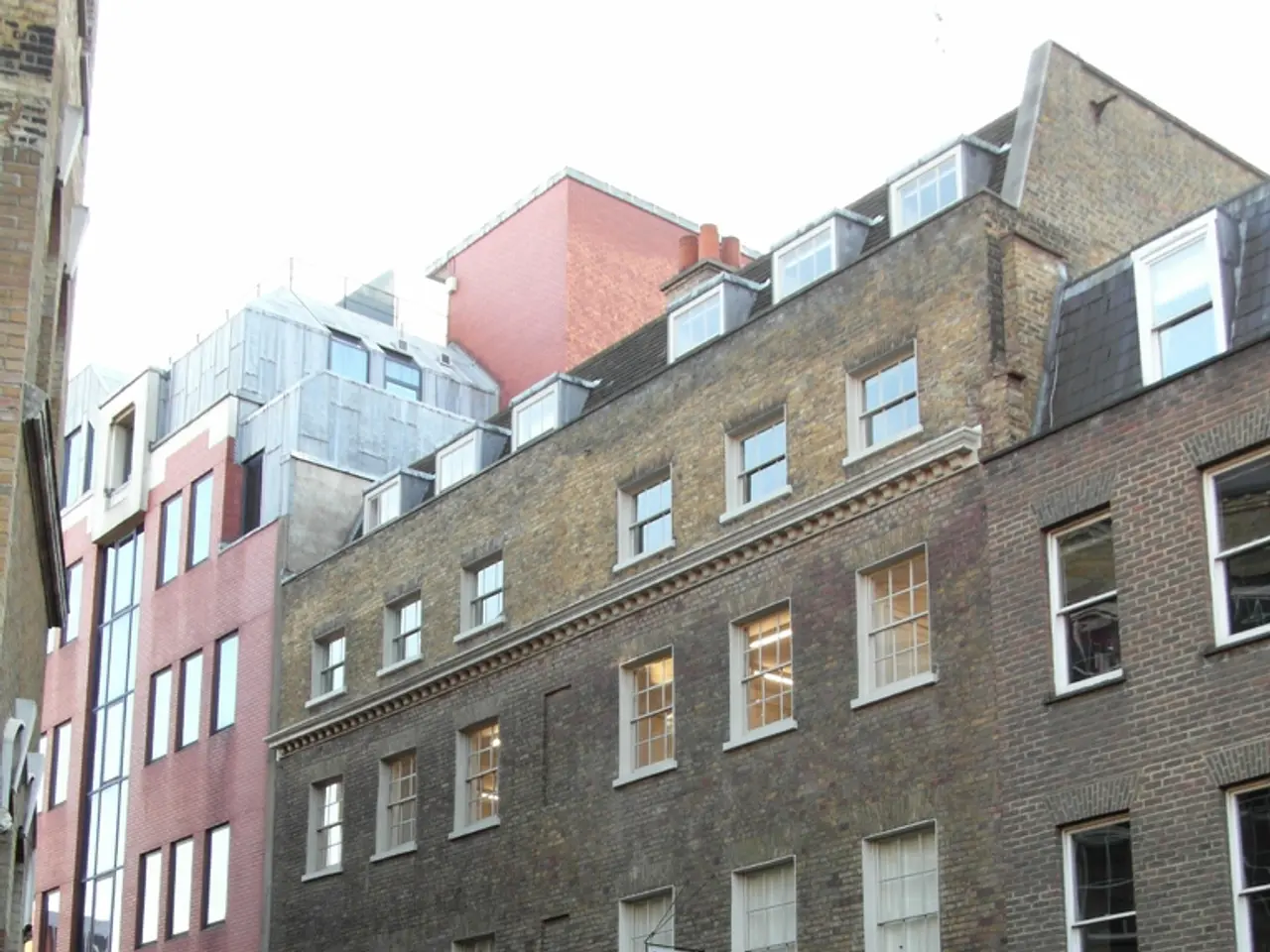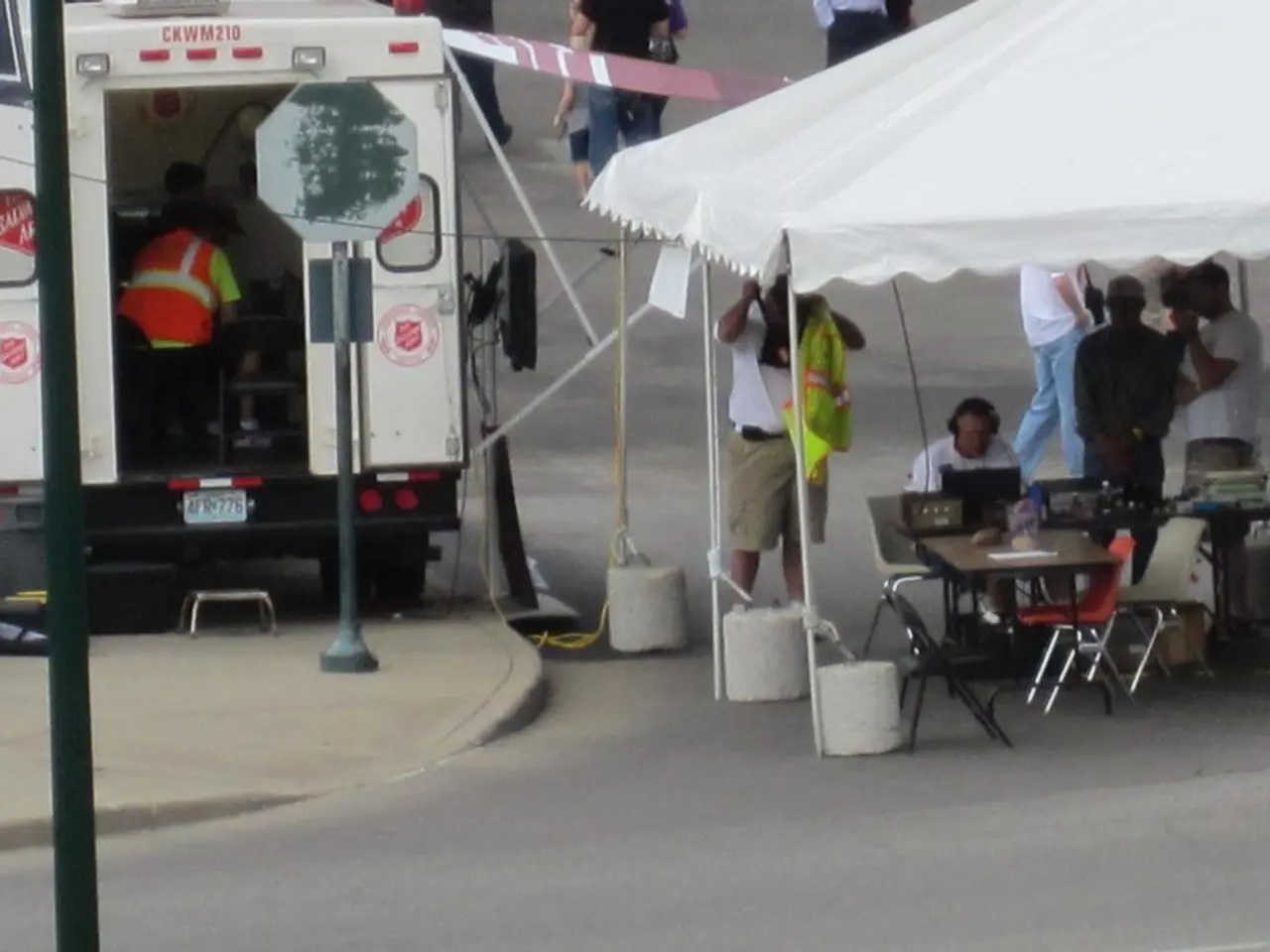Urgent Procedure Request Remains Unanswered by the Commission
In the heart of Europe, the Franco-German border town of Kehl and Strasbourg are experiencing a change in their long-seamless travel experience due to the reintroduction of border controls. The current Federal Chancellor of Germany, Friedrich Merz, and his CDU party are at the helm of these changes.
The mayors of both cities, Wolfram Britz and Jeanne Barseghian, penned an appeal to Chancellor Merz on the 40th anniversary of the Schengen Agreement. The increased border controls, primarily aimed at handling perceived security or immigration concerns, have led to passport checks on trains crossing the border, adding travel time and requiring travellers to have identification documents ready.
The enhanced border controls are part of a wider trend across the Schengen Area, with countries temporarily reintroducing internal border controls citing serious threats to public order or security. The European Union views these measures as last resorts, but they seem likely to persist given ongoing migration and security challenges.
As a result, the impact of these controls includes longer transit times, the need for travellers to carry proper ID, and some disruption to the previously seamless Schengen travel experience. The response has been localised German enforcement at a key crossing point, likely reflecting broader EU security policy trends.
The increased border controls, implemented by Federal Interior Minister Alexander Dobrindt, have caused significant impediments to life in the Franco-German metropolitan area. Not only are there increased travel times, but there are also frequent traffic jams at the European Bridge between Strasbourg and Kehl due to the controls.
Moreover, the controls have resulted in economic consequences, according to an assessment by Kehl and Strasbourg. Fewer customers from Strasbourg are visiting Kehl's shops, leading to a decline in local businesses.
The mayors have not received a response to their appeal as of the article's publication date. They have also written to French MP Brigitte Klinkert in hope of addressing the issue. No visit from Chancellor Merz has been announced as of yet.
The Schengen Agreement, signed on June 14, 1985, by Germany, France, Luxembourg, Belgium, and the Netherlands, aimed to gradually dismantle border controls. Today, 29 countries with approximately 420 million inhabitants belong to the Schengen area.
Despite the challenges, both cities continue to promote cross-border cultural and tourism activities. The border control at Kehl station remains in place as of July and August 2025, with train schedules adjusted to accommodate the extra 15 minutes for border checks.
The information about the increased border controls and turnbacks was reported by dpa/lsw. The number of turnbacks increased by almost half within a week, according to Minister Dobrindt, who also ordered that asylum seekers can be turned back at the border.
The mayors have invited Chancellor Friedrich Merz to visit their cities, hoping to discuss the impacts of the increased border controls and find solutions for a more seamless travel experience. The future of the Schengen Agreement and the Franco-German border remains to be seen.
- In light of the Schengen Agreement's 40th anniversary, the mayors of Kehl and Strasbourg, Wolfram Britz and Jeanne Barseghian, penned an appeal to Chancellor Friedrich Merz, advocating for a reconsideration of the enhanced border controls that have disrupted the seamless travel experience between the cities.
- The mayors' concern about the impact of the border controls extends beyond travel inconvenience, as they have noted economic consequences, such as declines in local businesses in Kehl due to fewer customers from Strasbourg, which they have highlighted in their communication to Chancellor Merz and French MP Brigitte Klinkert.







